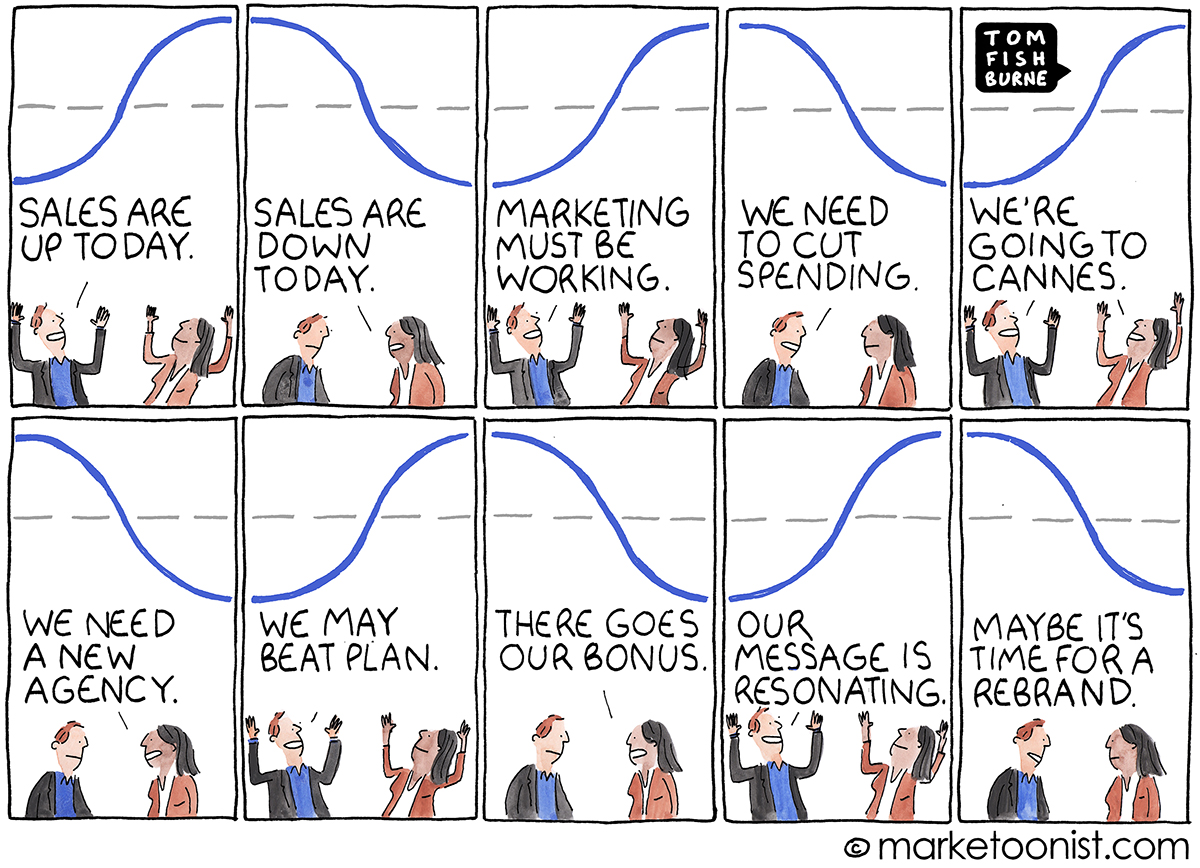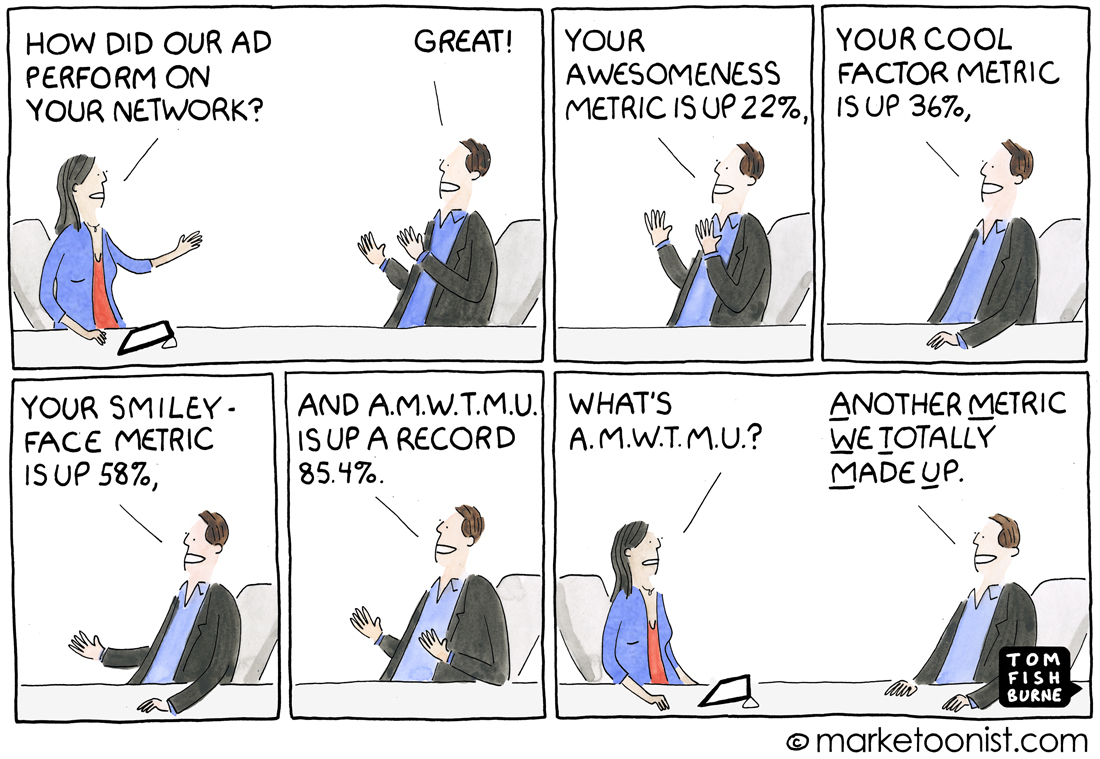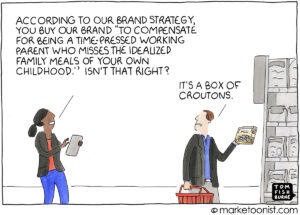“Not everything that counts can be counted, and not everything that can be counted counts.”
I think this 1963 quote from William Bruce Cameron (often misattributed to Albert Einstein) touches on some of the potential pitfalls of marketing dashboards.
In this era of data-driven marketing, dashboards can give marketers a false sense of security. They always appear authoritative, but the true value depends on what’s being measured.
The first half of the quote (“not everything that counts can be counted”) highlights what’s often missing in marketing dashboards — the metrics that are harder to measure, particularly qualitative findings or insights related to long-term brand growth.
This can lead to marketing short-termism, which Mark Ritson describes as “plucking all the fruit from the tree but not watering the plant.”
The second half of the quote (“not everything that can be counted counts”) reflects the overwhelming noise of data, particularly vanity metrics. It’s easier than ever to selectively cherry pick data that makes marketing look good. But that’s a trap. And it can lead to eroding trust of marketing within the leadership team.
Not all marketing dashboards are created equal. If a marketing dashboard is not providing insights that link to business results, it’s just a pretty distraction.
Here are a few related cartoons I’ve drawn over the years:
“Marketing Seat at the Table” May 2015

“Watching the Numbers” August 2018

“Digital Marketing Metrics” October 2016





Roger Bradburn says
The simple fact is that all metrics are biased by definition. We have chosen one metric above another thereby stating that one is the more important. They say that you “get what you measure” and it is true. Trouble is, what you decide to measure may not be what you need. Even sales may be undesirable as a metric if it is at the expense of profits or the resources of the business. Going at very high speed in the wrong direction is not going to win the race.